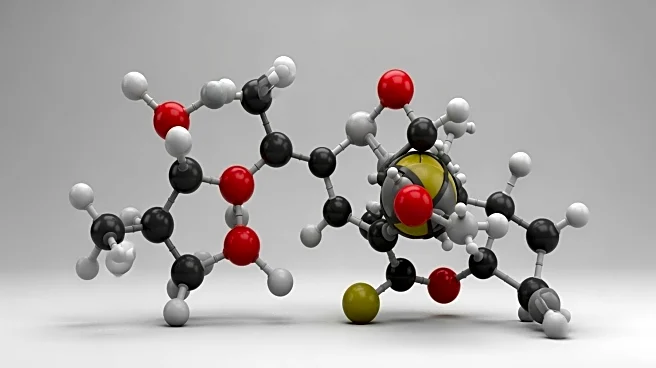What's Happening?
Researchers have developed a hierarchical incremental learning approach to decipher molecular arrangements in multi-component materials, which are crucial for energy and environmental applications. This
method involves feeding datasets sequentially into a model that learns features in a step-wise manner, allowing for a comprehensive analysis of atomic and molecular patterns. The approach is designed to overcome challenges in isolating contexts within complex systems, facilitating the generation of datasets for individual labels and improving the accuracy of molecular models.
Why It's Important?
This advancement in molecular arrangement analysis has significant implications for the development of materials used in energy and environmental sectors. By providing a more detailed understanding of molecular interactions, this approach can lead to the creation of more efficient materials for applications such as energy storage, catalysis, and environmental remediation. The ability to accurately model and predict molecular behavior can enhance the design and optimization of materials, potentially leading to breakthroughs in sustainable technology and resource management.
Beyond the Headlines
The hierarchical incremental learning approach also raises ethical and practical considerations regarding the use of machine learning in scientific research. As models become more complex, ensuring transparency and reproducibility in research becomes crucial. Additionally, the integration of machine learning in material science could shift traditional research methodologies, requiring scientists to adapt to new tools and techniques.









